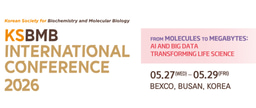Follow your passion and collaborate!

What is the recipe for eventually becoming an independent group leader in a prime research environment? When FEBS contacted me to approach this question and to provide career advice for young researchers, I was at first a little hesitant. I was skeptical because decisions that helped me at a given context and time may not reflect similarly for others. It is clear that no common recipe for a successful research career in academia exists. Although the list of ingredients is long and can differ quite substantially between individual career paths, I will highlight three components that I believe are generally important on the way to becoming a research group leader.
(1) Be really passionate about your research
I have a deep interest in understanding the principles that control gene transcription, the fundamental mechanism that underlies almost all processes in living cells and organisms. This interest arose during my high school years and has been growing ever since. My deep fascination for the complexity of gene regulation motivated me to study biology and to enter the captivating world of gene transcription research as an undergraduate. I continued working on this intriguing subject as a PhD student at the University of Munich (LMU), Germany, then as a postdoc at the Harvard Medical School in Boston, USA, and now together with my team as a group leader at the MPI for Molecular Genetics in Berlin, Germany.
The main lesson that I have learned from these key steps in my scientific career is that passion for your work is absolutely essential. You need to burn for your research and then other ingredients for a successful research career will follow. Only when you are really passionate about your research, you will have the motivation to work hard on complex scientific questions and hence for a long time. This passion will also help you maneuver through painful periods of failure and will undoubtedly increase the chances of making discoveries that will finally lead to publications in recognized scientific journals.
(2) Actively collaborate with others
Another ingredient that I consider as extremely important for my research career so far is my readiness to collaborate with others. During my PhD work and as a postdoctoral fellow, I closely collaborated on major projects with colleagues within and outside of the group, nationally and internationally. Retrospectively, I am convinced that many of the challenging and interdisciplinary projects that I was involved in so far would not have worked out as successfully if I had refused sharing projects and cooperation. Now as a group leader, I continue to actively collaborate with researchers worldwide on various subjects of gene regulation.
These fruitful collaborations taught me several lessons. First, when you work together with a colleague that you trust, you can complement experiences and knowledge, experimentally and conceptually. You can brainstorm together, come up with better experimental designs, discuss reasons why an experiment has failed and define new strategies for analyses. This already can strongly lower the risk of project failures and increases the chances of making discoveries. Second, collaboration can speed up progress. Third, collaborations can also have a positive impact on the quality of results. In my opinion, the main reason for this is that several scientists’ minds can pick up more than a single researcher, such as flaws in experimental design and data analysis. Finally, having a collaborator makes successes more enjoyable and, in a similar way, reduces pain in case of failures. Besides all other additional benefits of teaming up, remember that collaborations are excellent opportunities to grow your professional network.
(3) Be aware of the ‘luck element’
Another major lesson that I have learned from all stages of my scientific career is the importance of the ‘luck element’. Being passionate, collaborating, taking risks, and working hard are for sure generally important for successfully taking the next steps in your career. However, without a certain bit of luck a research career can end at any time especially during early stages. A key difference of this ingredient from the others – making it nerve-racking – is that the luck element is almost entirely out of our hands.
You need luck to have someone speak up for you in all kinds of panels that you encounter throughout your career, for instance in panels of your PhD program, fellowships, awards, grants, publications, and in selection committees for group leader positions. You need luck for having supportive and approachable mentors, for working on the right scientific problem at the right time and in the right research environment, and for not getting scooped by other researchers. So, accept that there are quite a few parameters that are out of your control and that make a research career, especially given the competitive situation, to a certain extent unpredictable.
Although I believe that these ingredients certainly increased my chances of finally obtaining a competitive group leader position, I want to emphasize again that in the real world there is no common ‘path of success’. The good news is that there are thousands of individual routes. The challenge is that you need to choose and go your own path. Do it your way, and best of luck for this adventurous and exciting journey!
Acknowledgements
I want to use this opportunity to thank all my past and present collaborators. I want to thank Yelizaveta Mochalova and Siddharth Annaldasula for critical comments on this career advice.
Top image of post: by Gerd Altmann from Pixabay





Join the FEBS Network today
Joining the FEBS Network’s molecular life sciences community enables you to access special content on the site, present your profile, 'follow' contributors, 'comment' on and 'like' content, post your own content, and set up a tailored email digest for updates.